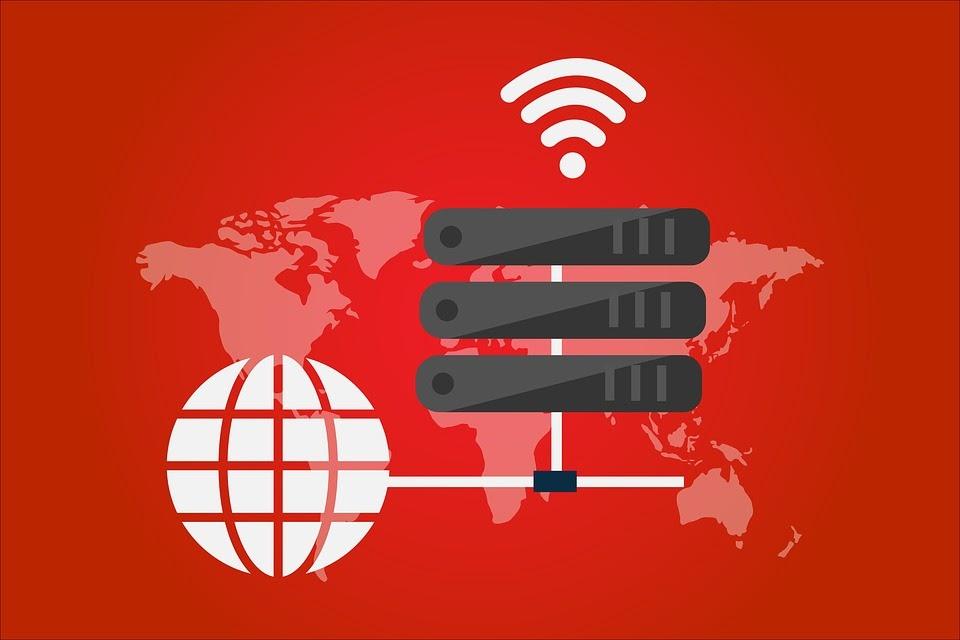Many people barely have an understanding of what purpose a proxy server serves. Most individuals associate proxy servers with unblocking content or staying secure from an open Wi-Fi network. In reality, there’s more to proxy servers than providing access to available content and security on open networks – and especially for businesses.
The big question is why do businesses need a proxy server. Technically, proxy servers have several benefits for most enterprises, from providing direct access to any server’s user data to easing data extraction and analysis. Businesses can perform many activities with proxies while securing themselves and their data from fraud.
There are many types of proxies depending on its storage and purpose.
Here, we will focus on cloud-based proxies. We will talk about several advantages of using a cloud-based proxy server for businesses.
Read on to find out more.
What Is a Cloud-Based Proxy?
Just like the name suggests, a cloud proxy is a proxy that is based on the cloud and not in a hardware appliance residing in a corporate data center. A proxy server acts as an intermediary between a user and the internet. It’s responsible for verifying and forwarding incoming client requests to other servers for further communication.
They are computers that provide a safe, quick, and anonymous way for users to access servers, websites, and other kinds of data sources.
Proxies generally serve as an intermediary. They separate end-users from the websites they browse. From security to privacy, proxy servers provide varying levels of functionality. All these depend on your case, needs, or company policy.
Why Is Cloud-Based Proxy Important to Your Business?

Proxies are essential. They have several impressive benefits if you are aiming for consistent growth. Here are several reasons you need a proxy server provider in your business.
-
They Provide Faster Speeds and Bandwidth Savings
We all know how irritating working with slow-speed internet can be. But this isn’t the case with proxy servers. It’s assumed that all the extra work accomplished in the background by proxy servers can slow down the internet speed.
This is not the case while working with high speed proxies. Proxy servers can quickly increase the speed and save bandwidth on a network. This is achieved by compressing traffic, catching files and web pages accessed by many users, and stripping ads from websites.
This frees up bandwidth on busy networks and ultimately makes it possible for your team to access the internet quickly and easily.
-
It Improves Corporate and Institutional Security
A data breach is very costly, both in terms of monetary loss and the impact on a company’s image. This is the reason why most companies today are worried about hackers.
A proxy server reduces the chances of a breach by adding an extra layer of security between your servers and outside traffic. Since proxy servers can face the internet and relay requests from computers outside the network, they act as a buffer.
While hackers may have their way into your proxy, it’s a given they will have a tough time reaching the server running the web software where your data is stored. It may not be possible to fully keep top hackers out with just a proxy IP alone, but your business will be much less vulnerable to them.
-
It Carries Out Sensitive Tasks Anonymously
For any company, data protection should be one of the biggest priorities. Proxy servers are best known for their ability to anonymize traffic. But most businesses fail to recognize the importance of this function.
Security officers, reporters, and whistleblowers. All count on the added identity protection provided by proxy servers to protect themselves, their companies, clients, sources, and even their partners.
Using a proxy server will always ensure that any potential spy trying to track web traffic can figure out what your business is developing, and won’t track your employees as quickly as they thought it would be. Any sensitive information or task completed over the internet will remain more secure if anonymized through a proxy.
-
Proxy Server Balances Traffic, so Your Server Doesn’t Crash
Nothing will annoy a customer more than a company’s website that goes down in the time of need. Additionally, if you have a large number of employees working on a time-sensitive project, the last thing you need is to have your server crash.
A crash can create massive damage. Apart from revenue loss, it can also cost you your customers. A proxy server paired with reliable cloud server backups improve customer experience by ensuring this does not happen.
Website data and content are stored across many servers worldwide in the cloud. Peering helps your network handle great traffic. This is very important as imagine asking a customer to try out ISPs (Internet Service Provider) to reach your content. That doesn’t sound good at all.
For this reason, a proxy server is used to create a single web address to serve as an access point. It also balances the requests to each server, so none overloads. All these work in the background to make sure customers have a seamless experience.
-
It Controls Employees Internet Usage
Most companies run internal networks on a proxy server. This keeps employees from accessing unsecured or inappropriate websites on the company networks. Once the network is accessed through a proxy server, network administrators can control the devices that have access to the network and the sites these devices can visit.
Any undesirable content can be blocked and sites that you may not want employees reaching out to. Network administrators can also record any content being accessed, and the time they are accessed for internal purposes. Most security officers use network administrators to monitor illegal activity or security breaches.
Bottom Line
Many companies use proxy servers for different purposes. Some use it to access restricted servers, while others use proxies for web scraping. But regardless of what a company uses the proxy for, the benefits are countless.
Thus, if you aim for consistent growth or look forward to securing your business from potential hackers, consider some of the several benefits of using a proxy server, as listed in this article.






